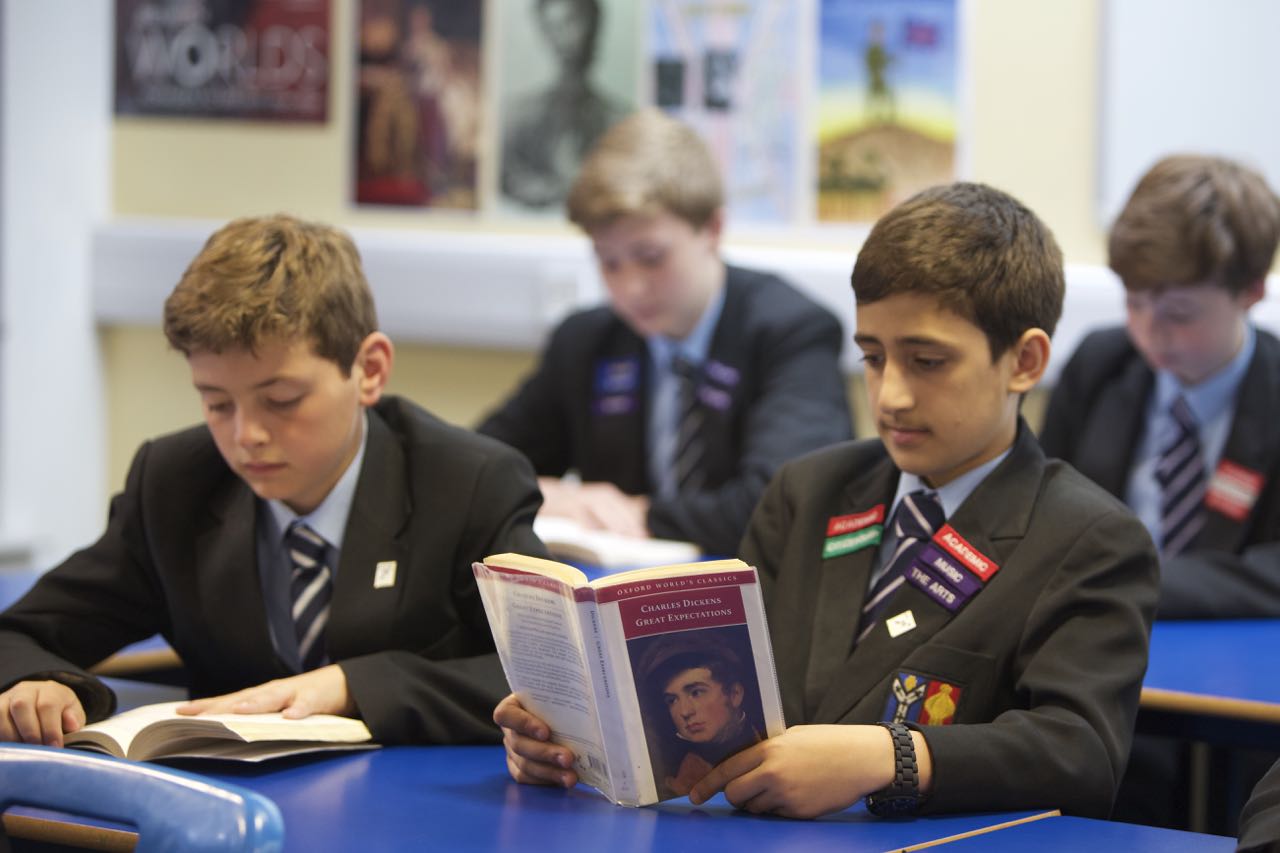
English
“The limits of my language stand for the limits of my world” (Ludwig Wittgenstein).
The English Department at Gunnersbury is one of the largest in the school and one thing that all members of the team have in common is their enthusiasm for English language and literature. The department’s aim is to achieve the highest possible standards for all pupils; we aspire to ensure that all pupils enjoy their learning in English and we strive to foster a love of reading and literature so that our pupils can enjoy its richness and rewards throughout their lives.
The ability to communicate is necessary for almost any career or aspect of adult life. Studying English teaches you how to write and speak, read and listen clearly and effectively. English teaches you many of the so-called ‘transferable skills’ that are sought after by employers and universities.
From Year 7, boys build on their skills in reading, writing and speaking and listening. They are taught in mixed ability groups with setting taking place in Year 8 and 9. There is a strong emphasis on independent reading with pupils completing reading diaries and attending library lessons from the Autumn term in Year 7. All pupils are introduced to a wide range of literature and are taught how to draft and redraft their writing and become confident and articulate speakers. Drama is taught as part of English at Key Stage 3 and debating and public speaking are popular; pupils participate in a variety of competitions, including Mock Trials competitions, in association with the Citizenship Foundation. Where possible, pupils participate in a wide range of theatre visits.

As the new GCSE states all pupils must study GCSE English Language and GCSE English Literature, the exam is untiered. The skills which are developed enable pupils to develop the skills they need to read, understand and analyse a wide range of different texts and write clearly. The pupil’s command of a clear and coherent style of written English is of paramount importance and we invest a lot of time in working with boys to make this possible. The Literature exams are closed book through the use of extract-based questions in the assessment of the 19th-century novel and the Shakespeare play. In addition they study an anthology of poetry, unseen poems and a modern drama text.
In Sixth Form, we teach Edexcel’s Advanced level English Literature. The 'A' level course builds on the knowledge, understanding and skills established at GCSE and there is clear progression from this. The course develops their reading with a range of set texts and secondary reading material available. They engage critically and creatively with substantial bodies of text and develop how to effectively apply their knowledge of literary analysis and evaluation. They not only look at their own interpretation of the texts but others’ views and the contexts in which they were written. They are also given opportunities to undertake independent and sustain studies of their own.
Student Learning Journeys:

